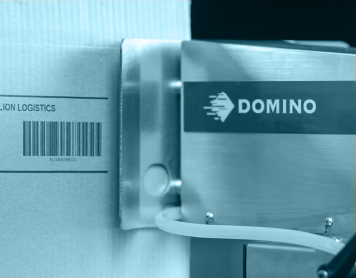IfM roadmapping
approach
Roadmapping
IfM approach
Consultancy
Courses
Case studies
Resources
Roadmapping
IfM approach
Consultancy
Courses
Case studies
Resources
RESEARCH EXCELLENCE + INDUSTRY EXPERTISE
The combination of the highest quality research, alongside expert application and delivery, sets the IfM roadmapping approach apart from other roadmapping methods and practitioners.
IFM ROADMAPPING: AN AGILE APPROACH TO PRODUCT AND STRATEGY DEVELOPMENT
Rapid changes in technology, regulations, competition and demand mean that it’s more important than ever for organisations to be able to respond to external changes and adapt quickly. To support organisations in this context, a roadmapping process needs to be efficient, dynamic and support agile approaches to product and strategy development.
IfM’s fast-start approaches to strategic and technology roadmapping include the Strategic Plan (S-Plan) and Technology Plan (T-Plan). These approaches help organisations take the first step into roadmapping with minimal resource and time commitment, thus adopting a lean and agile rapid prototyping approach to strategy development.
BENEFITS OF FAST-START ROADMAPPING
- Workshops are short in timespan (usually 1–2 days) and require relatively low resource and time commitments early in an organisation’s roadmapping journey.
- The process is undertaken in a rapid prototyping way, so the organisation learns from and starts to tailor the approach to their needs.
- Workshops have a focus on current concerns, using the approach as a diagnostic or problem-solving tool to improve the likelihood of ‘quick wins’.
- These ‘quick wins’ help to get stakeholders on-board with the process.
- Mapping available knowledge and views helps to identify gaps in knowledge, together with issues and risks that require action.
- The fast-start approach avoids the danger of over complicating and bureaucratising the roadmapping process, which is a common pitfall and a reason why many organisations flounder.
- Provides a valuable learning opportunity as a first step towards implementing a tailored and sustainable process within an organisation.
- The process is compatible with established agile development and lean innovation approaches, being efficient to deploy in visual management systems.
- Workshops are short in timespan (usually 1 – 2 days) and require relatively low resource and time commitments early in an organisation’s roadmapping journey.
- The process is undertaken in a rapid prototyping way, so the organisation learns from and starts to tailor the approach to their needs.
- Workshops have a focus on current concerns, using the approach as a diagnostic or problem-solving tool to improve the likelihood of ‘quick wins’.
- These ‘quick wins’ help to get stakeholders on-board with the process.
- Mapping available knowledge and views helps to identify gaps in knowledge, together with issues and risks that require action.
- The fast-start approach avoids the danger of over complicating and bureaucratising the roadmapping process, which is a common pitfall and a reason why many organisations flounder.
- Provides a valuable learning opportunity as a first step towards implementing a tailored and sustainable process within an organisation.
- The process is compatible with established agile development and lean innovation approaches, being efficient to deploy in visual management systems.

“Treating a roadmap as a fixed project plan is dangerous… A roadmap should be considered as a type of ‘radar’, looking forward in order to improve understanding, communication, build networks, capture knowledge, make decisions, agree priorities and take actions, steering the organisation into the future.”
Dr Robert Phaal, Director of Research (STIM, CUED, Centre for Technology Management, IfM)

“Treating a roadmap as a fixed project plan is dangerous…. A roadmap should be considered as a type of ‘radar’, looking forward in order to improve understanding, communication, build networks, capture knowledge, make decisions, agree priorities and take actions, steering the organisation into the future.”
Dr Robert Phaal, Director of Research (STIM, CUED, Centre for Technology Management, IfM)
OTHER BENEFITS OF THE IFM APPROACH
Knowledge transfer
We work collaboratively with organisations to help them develop roadmapping capabilities and expertise through a blend of training, consultancy and mentoring. We focus on developing roadmapping capability, training employees to become experts in roadmapping so it becomes a core component of your strategic toolset.
CASE STUDIES
CASE STUDIES
GET IN TOUCH
Contact us to find out how fast-start roadmapping can be used as an agile approach to product and strategy development in your organisation.



